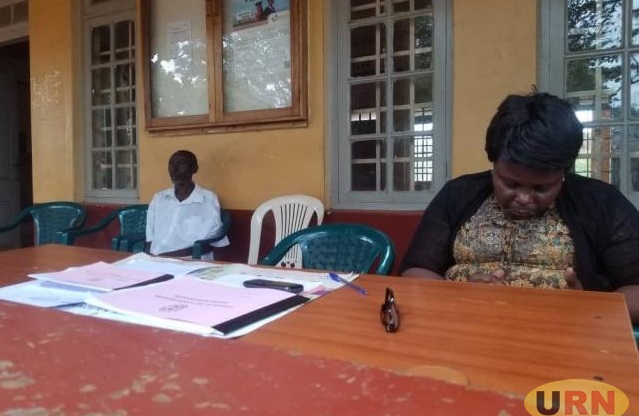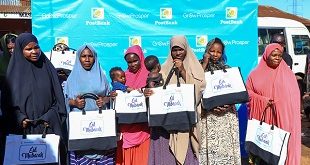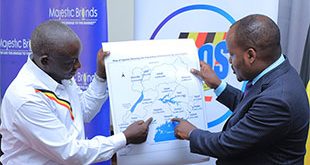
JNJA, UGANDA | THE INDEPENDENT | Eriasi Taabu, who resides in the industrial zone of Kamuli municipality, has lived with hearing impairments for the past 45 years. Not having extensive skills in sign language myself, I hired an interpreter to guide me through this interaction with Taabu. He shared his frustration about being deprived of the opportunity to fully participate in the electoral process, despite being a Ugandan of sound mind with equal rights to be heard through the ballot.
With his lower primary education, Taabu, born in 1980, was able to read civic messages printed on posters pinned to trees in his area. At age 26, he resolved to participate in the 2026 electoral process. However, Taabu says that there was no sign language interpreter at the time, which prevented him from making an informed decision regarding the election of a leader of his choice.
Taabu further shared his plight during the 2021 electoral process, saying he attempted to contest for the position of councilor representing persons with disabilities (PWDs) in Kamuli municipality.
“Following the knowledge I had acquired over the previous electoral cycles, I resolved to equally represent my constituents, the deaf, whose voices are rarely heard. However, when I went for nominations, the electoral commission officials could not communicate with me. My literacy levels are equally minimal and I can rarely construct English sentences, therefore, I missed out on this opportunity of exercising my democratic right,” he says.
Taabu hopes to establish an association for persons living with hearing impairments in Kamuli district, aimed at creating communication spaces for the deaf to fully express themselves on legal matters. He envisions the creation of WhatsApp groups at different sub-county levels where the deaf can engage in civic debates, and over time, share the information with counterparts in grassroots communities.
According to the 1995 Constitution, sign language is one of the official languages. Taabu wants all electoral commission offices to hire sign language interpreters as a means of enabling the full participation of the deaf in the district. Annet Nekesa, a woman living with hearing impairments in Namayingo district, says that, unlike the blind who can hear, the deaf can only see.
But with the current trend of civic messages being aired via radio stations, she is unable to grasp the messages detailing the electoral processes. Nekesa says that even the posters detailing electoral-related messages are widely pinned in town councils, depriving the deaf in rural areas of timely access to information.
She argues, “I am a mother of two girls without any hearing defects, and if these posters were to be pinned in their local markets, places of worship, schools, health center IIs, etc., my family members visiting these public places can easily inform me.”
According to statistics from the Uganda National Association of the Deaf (UNAD), over 1.29 million Ugandans live with hearing impairments, highlighting a significant need for urgent intervention to address their electoral needs. Moureen Nantamali, a person living with hearing impairments in Kaliro district, says that most deaf children are denied access to education. However, as these children have grown into adulthood, she believes the government should find ways to enable their participation in the electoral process.
Nantamali advises election officers to devise ways to identify the deaf in each district to foster accountability and ensure their voices are fully heard. She says that although many parents sideline their deaf children from education, which worsens their ability to advocate for viable civic spaces, the government should leverage the new birth registration system to track their progress through adulthood. This mechanism, she believes, will help facilitate their smooth participation in electoral processes.
Joy Nakyesa, the woman councilor representing PWDs in Kamuli municipality, says that they hold open participation engagements aimed at improving civic awareness among persons living with disabilities (PWDs). However, the costs of hiring sign language interpreters often prevent them from fully meeting the needs of the deaf. Nakyesa explains, “Much as Kamuli district local government leadership often provides conferencing space for PWDs to freely disseminate information during the highly contested electoral processes, the cheapest sign language interpreter charges 100,000 shillings, making it hard for us to address the needs of the deaf.
”She says that she has resolved to enroll in sign language classes with the hope of better disseminating accurate information to her constituents, the deaf, who she feels are left out without anyone to turn to regarding civic awareness. Nakyesa emphasizes that while individual leaders like herself work to amplify the voices of the deaf, the government must also be intentional about fostering inclusivity for the deaf in all aspects of life, from civic awareness to social services.
According to Paul Wandera, the director of Bridges of Glory School for the Deaf in Kayunga district, most parents of children with hearing impairments view them as cursed and deny them education during their early years. Through partnerships, Wandera says he has enrolled around 213 teenagers in the lower primary school section over the past five years, many of whom will be eligible to participate in the electoral process during next year’s election cycle.
Wandera says that these first-time voters are missing out on proper guidance on why they should participate in the electoral process and how their involvement can improve their well-being. Noah Katamba, an activist for PWDs focusing on the deaf in the Busoga sub-region, says that while the world is thriving on information advancements, there are limited innovations aimed at bridging communication gaps for the deaf, leaving them in despair.
As a volunteer sign language interpreter during public events across the Busoga sub-region, Katamba says he has documented the challenges faced by the deaf for the past 10 years, but little has been done to address their plight. Katamba argues that the deaf are languishing in social exclusion, a concern that could be better addressed through active civic awareness, which is hindered by a lack of information.
Citing the recently concluded voter update exercise, Katamba says, “I mobilized over 100 persons living with disability to participate in this process, but due to lack of sign language interpreters, only five of them with lip-reading skills were able to interface with electoral commission supervisors deployed at the different polling stations.
”Katamba has since expressed frustration over what he calls the continued reluctance by the electoral commission to address the plight of the deaf, despite his continued voluntary role in advocating for their rights. Moses Batwala, the LCV chairperson of Jinja district, says that local governments lack the budget to finance civic advocacy for marginalized groups like the deaf.
Batwala explains, “With limited data on the statistical figures of the deaf, it is hard for local government administrative units to advocate for budget allocation towards financing civic awareness programs.” Meanwhile, Kiira region election officer Deo Natukunda says that the information gaps have been addressed largely due to the presence of election supervisors at all parishes across the Busoga sub-region, who are tasked with fostering inclusivity for all.
Natukunda argues that the electoral commission has set up a proper feedback system from grassroots levels, through village chairpersons to the districts, which has enabled them to minimize communication challenges. Community concerns are addressed promptly to ensure a clean electoral process. Natukunda, who takes pride in the registration of over 70,000 new voters, including those with hearing impairments, agrees that continuous improvement of information flow is key to fostering inclusivity for all voters.
****
URN
 The Independent Uganda: You get the Truth we Pay the Price
The Independent Uganda: You get the Truth we Pay the Price



